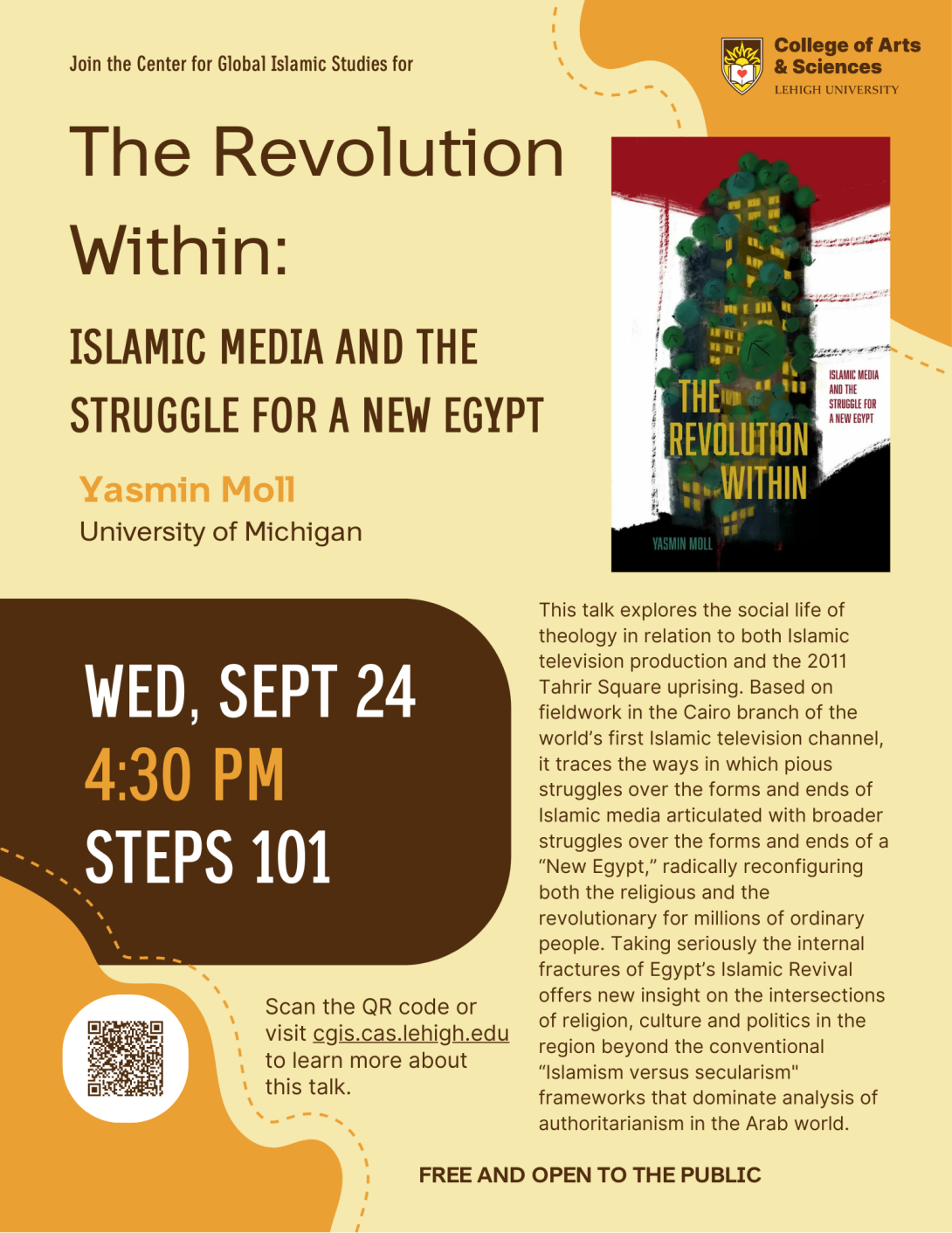This talk explores the social life of theology in relation to both Islamic television production and the 2011 Tahrir Square uprising. Based on fieldwork in the Cairo branch of the world’s first Islamic television channel, it traces the ways in which pious struggles over the forms and ends of Islamic media articulated with broader struggles over the forms and ends of a “New Egypt,” radically reconfiguring both the religious and the revolutionary for millions of ordinary people. Taking seriously the internal fractures of Egypt’s Islamic Revival offers new insight on the intersections of religion, culture and politics in the region beyond the conventional “Islamism versus secularism" frameworks that dominate analysis of authoritarianism in the Arab world.
Yasmin Moll is an Assistant Professor in the Department of Anthropology at the University of Michigan. A socio-cultural anthropologist, Dr. Moll’s research interests span the intersections of religion, media, and politics as well as questions of race, indigeneity and heritage activism in the Middle East and North Africa. Her work explores what a methodological attunement to theological contestations reveals about everyday dynamics of ethical belonging and moral boundary-making in highly polarized contexts.

